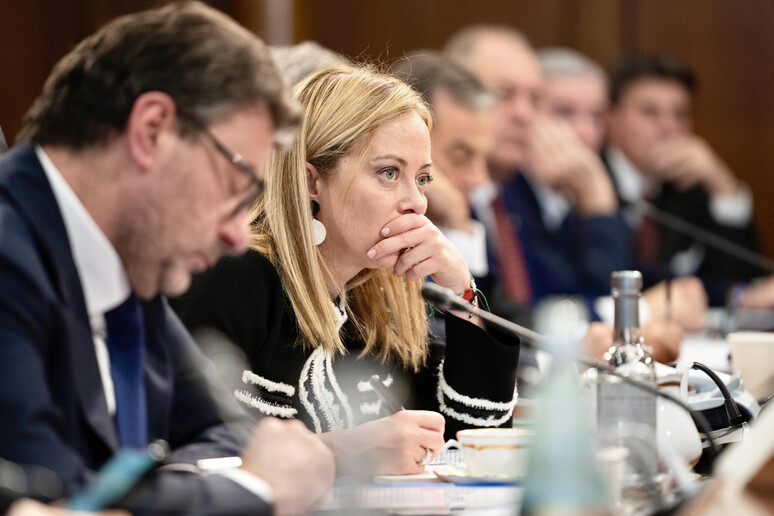The government's 2023 budget bill
will hit the floor of the Lower House on December 20, House
whips decided Wednesday.
The 35-billion-euro package, which includes 21 billion euro of
measures to cushion the impact of the energy crisis, must be
approved before the end of the year.
A windfall tax on the extraordinary profits of energy companies
has been increased to 50% of the profits of 2022 in excess of
the average fort the 2018-21 period.
This regards around 7,000 companies involved in the production,
sale or importation of energy and should generate around 2.56
billion euros in revenue.
The package cuts income tax for people earning up to 35,000
euros by two percentage points and for those on under 20,000 by
three points.
It raises the maximum threshold of the 15% flat tax for the
self-employed for those on up to 65,000 euros a year to 85,000.
The citizenship-wage minimum-income benefit is set to be
abolished for people considered fit for work at the end of next
year.
The bill also makes it easier for people to retire early.
It brings in the 'Quota 103' system which makes it possible for
people to start claiming their State pension at the age of 62 if
they have 41 years of social-security contributions.
Premier Giorgia Meloni has said the 2023 budget bill was
consistent with the commitments her government had made to the
Italian people.
Writing on Facebook, she said "In little more than a month since
its formation, the government has already shown all its unity
and concreteness, giving serious and detailed answers to the
needs of citizens and Italy.
"(It is) a budget written and presented in record time,
consistent with the commitments made to the Italian people, with
large resources earmarked for families, businesses and the most
fragile and struggling categories".
A row has broken out over a measure in the government's 2023
budget bill that raises the minimum amount for which retailers
are obliged to accept electronic payments from 30 to 60 euros,
with opposition parties and consumer groups blasting the move.
The centre-left Democratic (PD) said it would encourage the use
of cash and thus hamper the fight against tax evasion, breaching
the commitments made to the EU for the National Recovery and
Resilience Plan (NRRP) in the process.
"It goes against the interest of millions of Italian people who
use electronic money every day and it is in contrast with the
NRRP," said the PD's economic pointman Antonio Misiani.
The National Union of Consumers (UNC) said it would ask the
European Commission to intervene.
"The government is making us go back to the Middle Ages, taking
sides against consumers and the needs of families," said UNC
President Massimiliano Dona.
"They think that they are protecting shopkeepers in this way
but, not realising that they are going against what is normal
all over Europe, they are actually going against the interests
of retailers, who have many advantages from electronic
payments".
European Commission spokesperson Veerle Nuyts said the EU
executive had not yet assessed the move as the budget is not in
its definitive version.
ALL RIGHTS RESERVED © Copyright ANSA











